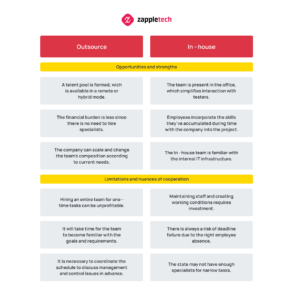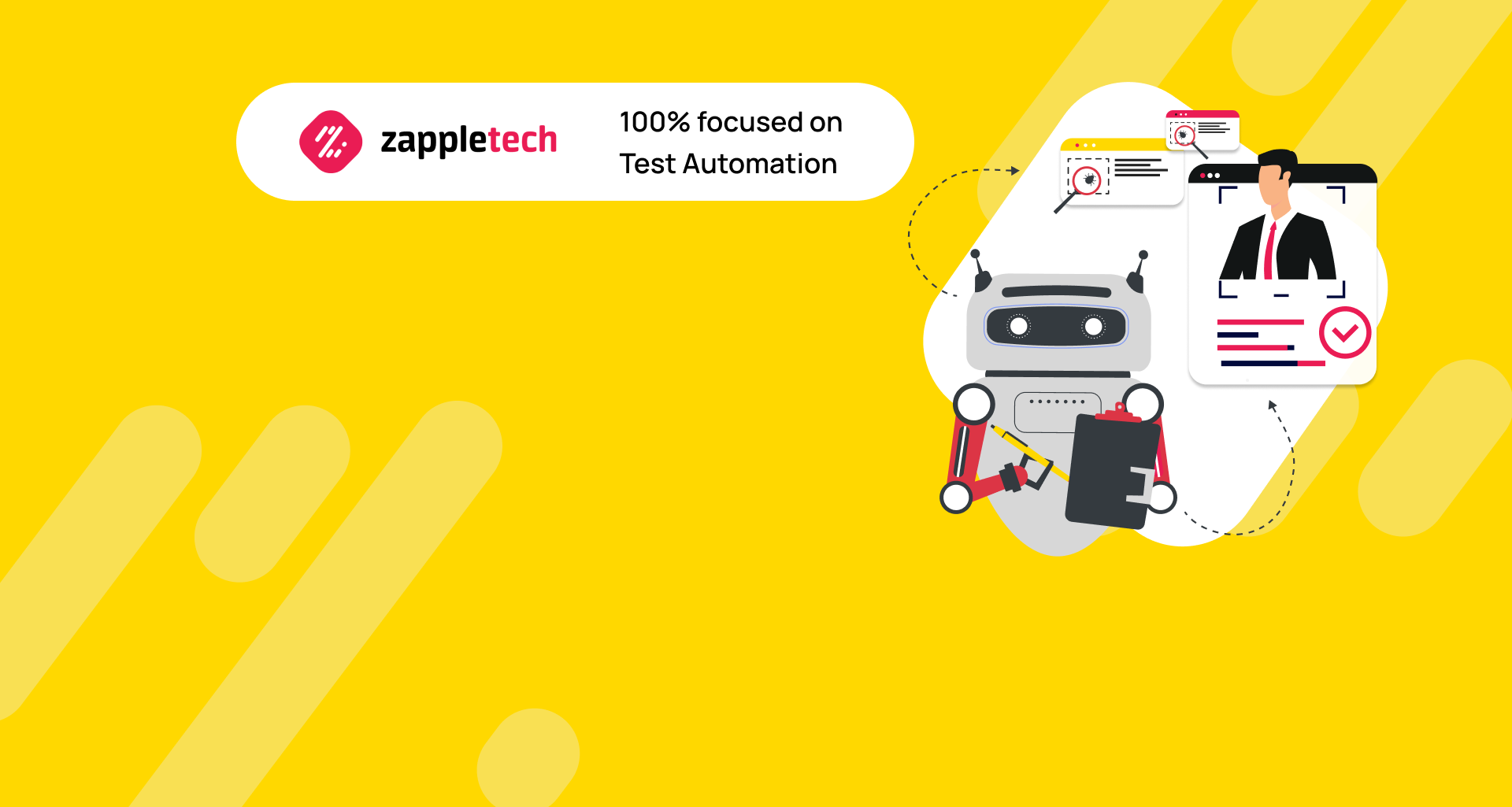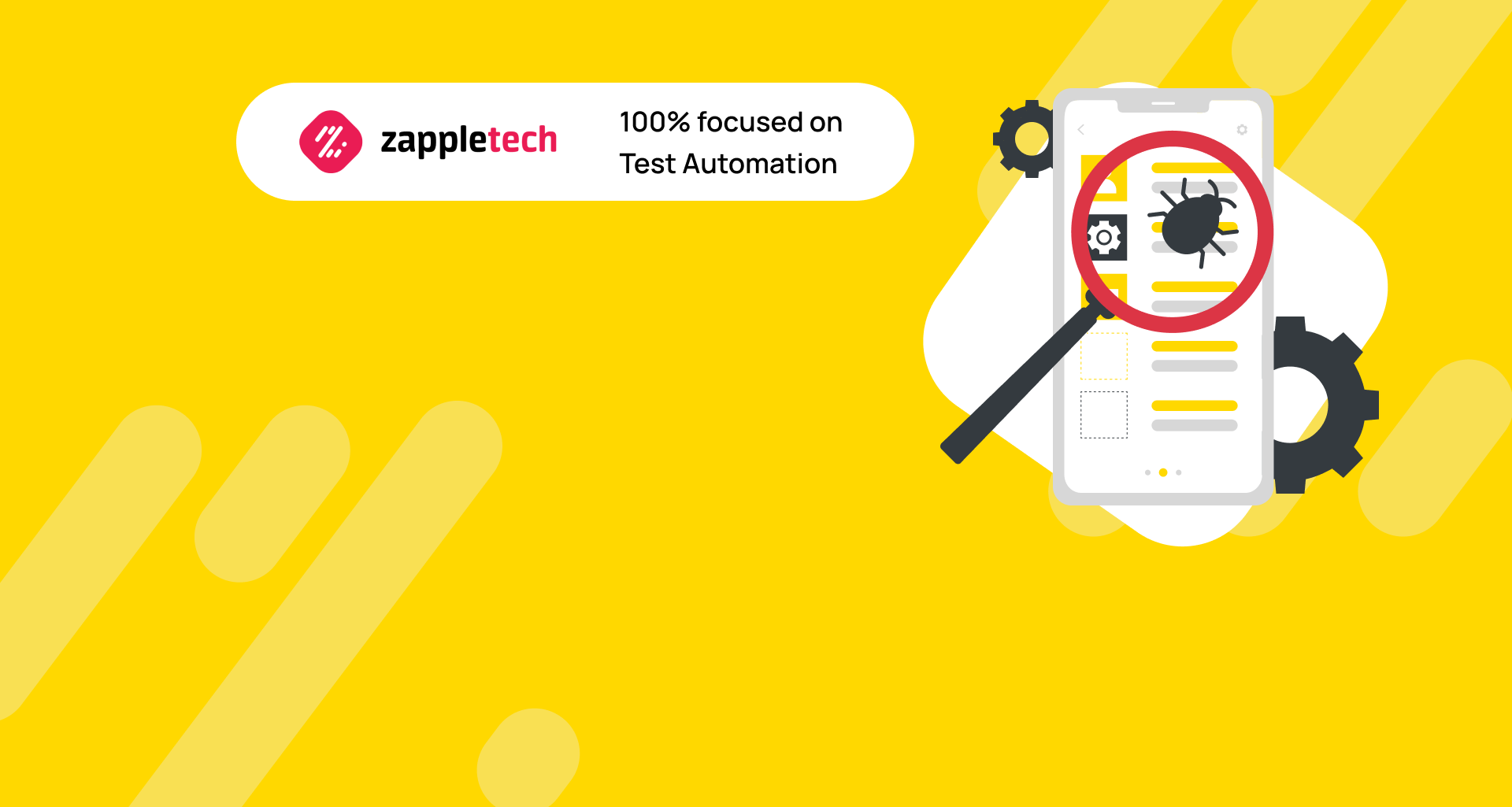When it comes to creating, implementing, or upgrading a software product, software testing is not just necessary; it is critical for ensuring quality and functionality. In today’s highly competitive and fast-paced digital landscape, delivering a robust and error-free product through an effective test automation approach is essential to gain customer trust and achieve business success.
But the main question remains: Who should be responsible for identifying and resolving errors? A business generally has two options: either assign the tasks to an in-house team or delegate the work to a third-party company that specializes in test automation outsourcing. The latter option has been gaining significant popularity due to its many benefits, such as cost-efficiency, access to expert talent, and quicker turnaround times achieved through a robust automation strategy.
Table of Contents
Understanding Test Automation
When it comes to creating, implementing, or upgrading a software product, software testing is not just necessary; it is critical for ensuring quality and functionality. In today’s highly competitive and fast-paced digital landscape, delivering a robust and error-free product through an effective test automation approach is essential to gain customer trust and achieve business success.
But the main question remains: Who should be responsible for identifying and resolving errors? A business generally has two options: either assign the tasks to an in-house team or delegate the work to a third-party company that specializes in test automation outsourcing. The latter option has been gaining significant popularity due to its many benefits, such as cost-efficiency, access to expert talent, and quicker turnaround times achieved through a robust automation strategy.
Outsourcing gives you access to a team of automation experts without needing to hire and train in-house staff.Mykhailo PoliarushCEO, ZappleTech Inc.
The Growing Trend of Outsourcing
The practice of outsourcing test automation is not new, but it has seen significant growth in recent years. Companies are increasingly recognizing the strategic advantages of partnering with specialized firms that can offer expertise, advanced automation testing tools, and flexible engagement models. Outsourcing is not just about cutting costs; it’s about leveraging global talent, employing efficient automation testing strategies, accelerating time-to-market, and gaining a competitive edge.
Benefits of Test Automation Outsourcing
Test automation outsourcing allows companies to focus on their core business activities while relying on specialists to manage the complexities of testing. This approach is particularly useful when the internal development team lacks the necessary skills, tools, or bandwidth to handle comprehensive automation tasks and testing processes. It is ideal for businesses looking to speed up the software development process without compromising on quality.
In-House Testing vs. Outsourcing
Resource Allocation
- In-House: Requires significant investment in hiring, training, and retaining skilled testers. The company must also invest in testing infrastructure and tools.
- Outsourcing: Provides immediate access to a pool of experts without the overhead costs. Resources can be scaled up or down based on project needs.
Cost Implications
- In-House: Ongoing costs include salaries, benefits, equipment, software licenses, and office space.
- Outsourcing: Typically operates on flexible pricing models like fixed-price, time-and-materials, or dedicated teams, allowing better budget management.
Expertise and Quality
- In-House: Quality depends on the skills and experience of the internal team, which may be limited.
- Outsourcing: Offers access to industry veterans with diverse experience, leading to higher quality outcomes.
Focus on Core Competencies
- In-House: Diverts attention from primary business activities to manage testing processes.
- Outsourcing: Allows the internal team to focus on strategic initiatives, product development, and market expansion.
Scalability and Flexibility
- In-House: Scaling up requires time-consuming hiring processes; scaling down may involve layoffs.
- Outsourcing: Easily adjusts team size and skill sets to match test automation project requirements without long-term commitments, maximizing business value from automation efforts.
Challenges with In-House Testing
Managing an in-house testing team can present several challenges:
- Talent Shortage: Finding and retaining skilled automation testers is difficult due to high demand in the market.
- Training and Development: Continuous learning is required to keep up with evolving technologies and methodologies.
- Tool Maintenance: Regular updates and maintenance of testing tools and testing environments can be resource-intensive.
- Risk of Bias: Internal teams, including manual testers, might develop blind spots due to familiarity with the product, potentially overlooking defects.
Why Companies Choose to Outsource Test Automation
1. Cost-Effectiveness
This is perhaps the main motivation to switch to the outsourcing model. Cooperation with an outsourcer is possible even with a limited budget. By opting for test automation outsourcing, businesses can focus on their core activities while minimizing overhead expenses related to in-house test teams.
Outsourcing reduces personnel costs, including salaries, benefits, and ongoing training expenses. It also eliminates the need for space rental, equipment purchase, and investment in automation tools and licenses, as well as the time required to build an automation test plan. This is especially valuable for startups and small companies that are not yet ready to invest in building an IT department and hiring testers.
2. Access to Expert Talent
The secret of test automation outsourcing demand is not just in the cost savings. Beyond the financial benefits, businesses gain access to top-tier industry expertise, cutting-edge test automation technology, and advanced tools that are critical to ensuring high-quality results, including the latest framework technologies.
Experienced outsourcing providers possess deep intellectual capital in specific industries or even across multiple sectors and maintain an up-to-date technological infrastructure, including the latest automation testing tools and methodologies.
A dedicated outsourced team provides expert assistance in targeted testing areas without the need for additional training. They can start immediately after familiarizing themselves with your project requirements, aligning with you on testing strategies, reporting, and feedback processes, ensuring an effective test automation approach.

3. Recruitment Flexibility
3. Recruitment Flexibility
Recruitment flexibility in test automation outsourcing gives your business the ability to attract the specific testing knowledge and skills required at any given time. Even if your testing requirements aren’t fully formed, the outsourcing partner can audit your project and provide specialists with relevant expertise. This allows you to bypass the need to establish an internal HR department, saving time and resources otherwise spent on recruitment, onboarding, and training your development team, and instead focus on optimizing automation efforts.
As your project evolves—whether through added functionality, enhanced reliability, platform migrations, or new integrations—your outsourcing partner can swiftly bring in additional specialists to meet these changing needs. This agility in scaling up resources means you can better adapt to shifting project demands compared to the slower, more rigid process of hiring in-house talent, ensuring your automation strategy remains effective and testing time is minimized.
4. Comprehensive Services
Comprehensive help in test automation outsourcing can be invaluable for organizations looking to enhance the quality of their software testing. The need for a thorough testing strategy arises from various situations. For instance, you might be developing a new application and want to eliminate bugs before launching it, necessitating a well-planned test automation project using an effective testing framework. Alternatively, an update to an existing web solution may require testing to ensure everything functions smoothly. Or perhaps you’re verifying that a software solution developed by another team meets your standards for quality and is free of defects.
Outsourcing eliminates the need for costly infrastructure and full-time staff, allowing you to focus resources on core business areas while still ensuring top-notch testing quality.Mikhail BodnarchukCDO, ZappleTech Inc.
Through test automation outsourcing, you not only receive expertise in automated testing but also access to a broad range of related services. Even when a company specializes primarily in automated testing (AT), they often offer complementary solutions. This can include:
- Developing a Comprehensive Testing Strategy: Crafting a tailored approach that aligns with your project goals, including an automation testing strategy.
- Conducting QA Audits: Assessing existing processes to identify areas for improvement.
- Evaluating Overall Software Quality: Ensuring the product meets industry standards and user expectations through consistent software testing processes.
- Providing Ongoing Maintenance: Offering support after deployment to handle updates and new features.
- Supporting Testing Infrastructure: Managing the tools, test automation environment, and test environments needed for effective testing, including test data management and maintaining the test suite.
- Integrating Necessary Tools: Seamlessly incorporating automation frameworks and software into your development process, following a comprehensive automation test plan.
5. Focus on Core Business Activities
Imagine that you outsourced product testing to an outside team. What will you and your staff do with the free time? Of course, focus on key business areas. By utilizing test automation outsourcing, you will be able to correctly distribute the workload among internal specialists, like your development team, and assign resources for solving priority tasks that add significant business value.
For example, you can set the stage for promoting a new product by developing a marketing campaign, enhancing client relationships, or expanding your business strategy.
Additionally, outsourcing gives you peace of mind when making long-term plans without worrying that something will go wrong. Why? You remain independent of circumstances: under the concluded contract, the test automation outsourcing provider is obligated to deliver services on time. Even if there are changes in their team—such as employee illness, vacation, or resignation—this won’t affect your project. Testing will be completed on time, meeting the agreed performance indicators, ensuring consistent testing quality and efficient testing time.
6. Faster Time-to-Market
Outsourcing can significantly accelerate the testing phase, helping you bring your product to market faster. External teams are often available to start immediately and work around the clock due to different time zones, providing continuous progress. This rapid testing process ensures that any defects are identified and resolved quickly, maximizing the efficiency of your automation efforts and providing reliable test results, thereby reducing delays in product release.
7. Access to Latest Technologies
Outsourcing partners typically invest in the latest tools and technologies to stay competitive. By collaborating with them, you gain indirect access to advanced testing frameworks, automation tools, and best practices in automation strategy without bearing the costs of acquiring and maintaining these technologies yourself.
8. Improved Quality and Reliability
With their specialized expertise and experience, outsourcing firms can deliver higher quality testing outcomes. They are well-versed in various testing methodologies and testing strategies, including unit testing, integration tests, and smoke tests, ensuring comprehensive test coverage so that your software product is robust and reliable.
9. Risk Mitigation
Experienced outsourcing partners have established processes and contingency plans to handle potential risks. They can identify vulnerabilities early in the development cycle through thorough risk analysis and limitations risk analysis, reducing the likelihood of post-release failures. Their expertise in risk assessment and management adds an extra layer of security to your project.
10. Objective Assessment
An external testing team provides an unbiased perspective on your software. They can identify issues that internal teams might overlook due to familiarity or cognitive biases. This objectivity, often achieved through exploratory testing by experienced testers, leads to more thorough testing and higher quality products than might be achieved by internal manual testers.
When to Consider Test Automation Outsourcing
Understanding the right time to engage an external team is crucial. Consider outsourcing when:
- Facing Tight Deadlines: External teams can accelerate the testing process to meet launch dates.
- Lacking In-House Expertise: If your team isn’t familiar with specific tools or methodologies, outsourcing fills the gap.
- Scaling Projects Quickly: Outsourcing allows rapid resource expansion without long-term commitments.
- Implementing New Technologies: Experts can guide you through unfamiliar terrains, reducing learning curves.
- Need for Objectivity: An external perspective can identify issues that internal teams might overlook.
Key Factors in Choosing an Outsourcing Partner
When choosing an outsourcing partner for test automation, it is essential to conduct a comprehensive evaluation across several critical areas to ensure alignment with your technical and business objectives. The right partner will help accelerate your project, while a poor choice could lead to delays and inefficiencies. First, you need to assess their expertise and experience in test automation. Look at their track record with similar projects to understand their ability to handle your specific requirements. Their familiarity with the latest tools and technologies, as well as a deep understanding of various automation frameworks, plays a crucial role in their effectiveness.
Another important aspect is their ability to integrate seamlessly with your existing team and workflows. Cultural fit, communication skills, and responsiveness are key factors that influence how well they will collaborate with your internal team. Additionally, the scalability of the outsourcing partner should not be overlooked. A reliable partner should be able to scale resources up or down according to the demands of your project without compromising quality or timelines.
Cost is also a major consideration, but it should be evaluated alongside the value they bring. A partner offering a low price may not always deliver the desired results, which could lead to higher costs in the long run due to poor-quality outcomes. Transparency in pricing models and clear contractual terms regarding timelines, deliverables, and support will help in managing expectations and reducing risks.
Lastly, consider their commitment to security and compliance, especially if you are handling sensitive data. The partner must adhere to industry best practices in data protection and comply with relevant regulations, ensuring that your intellectual property and project information remain secure. By carefully evaluating these factors, you can choose an outsourcing partner that not only meets your technical needs but also contributes to the overall success of your project.
1. Technical Expertise and Experience
Technical experience is a crucial factor when choosing a company for test automation outsourcing. The company must demonstrate its ability to provide the necessary resources by showcasing a robust portfolio with detailed case studies.
This should include a clear breakdown of the technical stack used in past projects, showing expertise in relevant tools and frameworks such as Selenium, Appium, JUnit, TestNG, and others. Additionally, referencing real clients helps validate their experience and builds trust with potential partners.
Questions to Ask:
- What automation tools and technologies do you specialize in?
- Can you provide case studies or references from similar projects?
- How do you stay updated with the latest trends in test automation?
2. Adaptability and Agility
The ability to adapt is crucial when considering test automation outsourcing. It is important to ensure that the outsourcer can quickly adjust to unexpected changes in project scope, timelines, or requirements. This flexibility is often achieved through an agile approach, which allows teams to continue working efficiently in an ever-changing environment.
Questions to Ask:
- How do you handle changes in project requirements?
- What project management methodologies do you employ?
- Can you adjust team size and skills as needed?
3. Cost Considerations
Cost level is an important factor to consider, especially when evaluating test automation outsourcing options. While lower prices might seem appealing at first, this approach can be misleading. In the long run, you are unlikely to benefit from these savings, as the lack of experience might lead to more costly errors or inefficiencies.
Questions to Ask:
- What pricing models do you offer?
- Are there any hidden costs or additional fees?
- How do you ensure cost-effectiveness without compromising quality?
4. Collaboration and Communication Strategies
When collaborating with an external team for test automation outsourcing, it’s crucial to establish a well-defined interaction strategy. Clear expectations should be set from the beginning, covering everything from task distribution to reporting processes.
Questions to Ask:
- What communication channels do you use?
- How often will updates and reports be provided?
- Who will be the main point of contact?
5. Data Security and Confidentiality
When engaging in test automation outsourcing, safety and security are paramount. The outsourcer must prioritize data protection for every project, ensuring that all sensitive information related to the product and client company is handled securely.
Questions to Ask:
- What security measures do you have in place to protect data?
- Are you willing to sign a Non-Disclosure Agreement (NDA)?
- How do you ensure compliance with data protection regulations?
6. Cultural Fit and Time Zone Compatibility
Cultural alignment and time zone considerations can impact the efficiency of collaboration. Working with a team that shares similar work ethics and can align their working hours with yours facilitates smoother communication.
Questions to Ask:
- What are your standard working hours?
- How do you handle collaboration across different time zones?
- Can you accommodate our preferred communication schedule?
7. Quality Assurance Processes
Understanding the outsourcing partner’s approach to quality assurance ensures that their standards align with yours. Their testing methodologies, documentation practices, and defect tracking mechanisms should be transparent and robust.
Questions to Ask:
- What is your approach to ensuring quality in test automation?
- How do you document test cases and results?
- What tools do you use for defect tracking and management?
8. References and Reputation
Checking references and reviews from previous clients provides insights into the outsourcing firm’s reliability and performance. A company with a strong reputation is more likely to deliver satisfactory results.
Questions to Ask:
- Can you provide references from past clients?
- Are there testimonials or reviews available?
- Have you received any industry recognitions or awards?
Conclusion
In conclusion, test automation outsourcing offers numerous advantages that make it an attractive option for businesses of all sizes. One of the key benefits is the ability to tap into specialized expertise that might not be available in-house.
Outsourcing partners often have extensive experience in various industries and access to the latest tools, frameworks, and best practices in automation. This can result in faster implementation of automated tests and higher overall efficiency in the testing process.
Additionally, test automation outsourcing significantly reduces operational costs. Rather than investing in expensive tools, hiring full-time automation engineers, and maintaining an internal testing infrastructure, businesses can rely on external teams to handle these tasks more cost-effectively.
Outsourcing also allows for better resource allocation, enabling internal teams to focus on core development tasks while the outsourced team ensures the quality and reliability of the product through rigorous automated testing.
Flexibility is another major advantage of test automation outsourcing. Companies can easily scale up or down based on project requirements, allowing for greater agility in response to fluctuating workloads or deadlines. This scalability ensures that businesses can meet tight deadlines without overextending internal resources.







